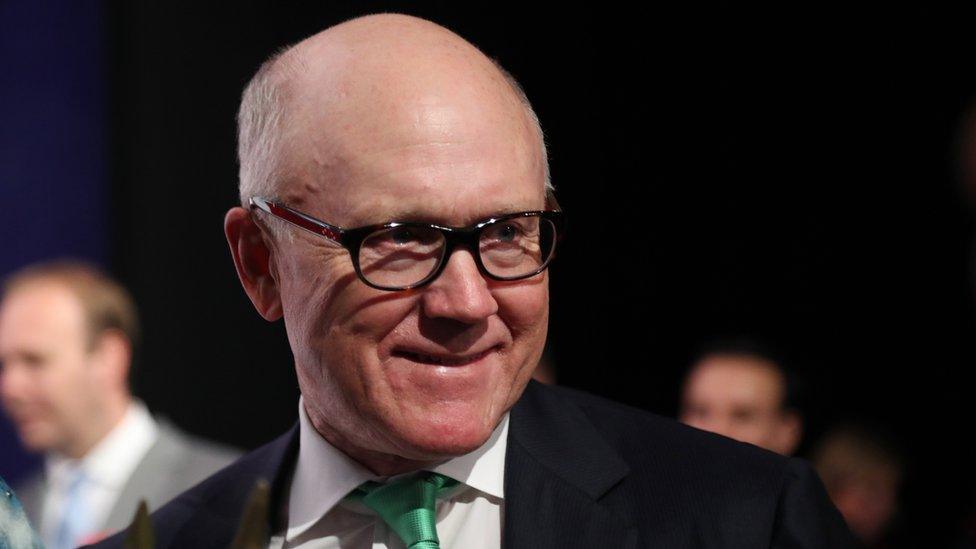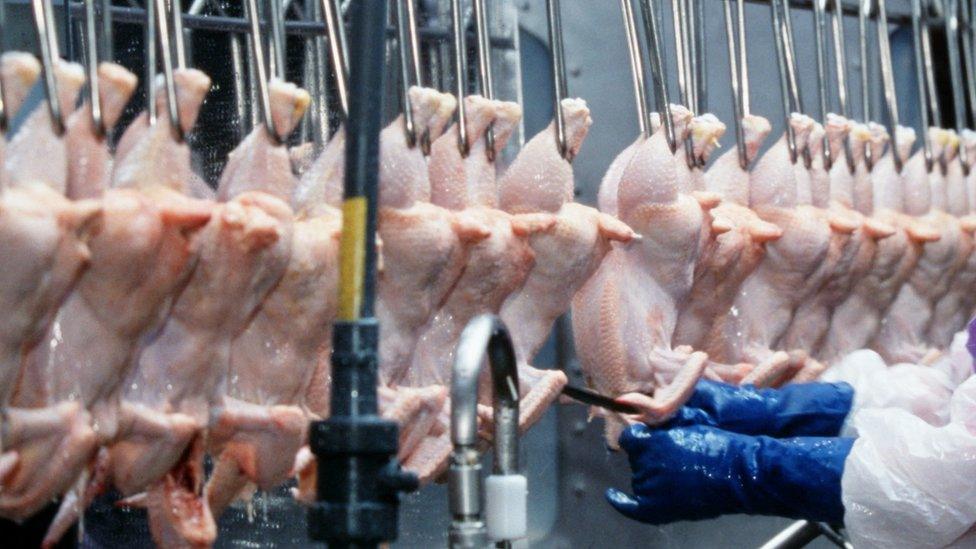US ambassador defends farming record on chicken and beef
- Published
- comments

Washington's ambassador to the UK has defended the US's approach to food hygiene and farming.
Criticism of US food standards was "designed to reduce not increase trade", Woody Johnson told the BBC.
US beef and chicken producers use processes not permitted in the EU, including rinsing chicken carcasses with chlorine.
But Mr Johnson said the UK should accept American meat as part of a post-Brexit trade deal.
"To get a robust trade arrangement, that lifts all boats, it has to include farming and farm products," he said.
Whether the UK should allow imports of US-produced beef and chicken after it leaves the EU is among the most contentious trade questions.
He said Americans believed their food was "cost-effective and humane" and would have taken legal action if they felt there was anything wrong with the safety of their food.
"If I had my choice between chicken that was safe and clean and didn't have campylobacter material and poisons on it... I would take the one that had been cleaned sufficiently," he said.

Does the US have less food poisoning?
The ambassador defended the practice of treating meat with chlorinated water, telling the BBC that in the US, "we have the lowest levels of food poisoning".
But it's difficult to find enough evidence to support this claim. The most common bacteria in chicken that cause food poisoning are campylobacter and salmonella.
A study in the UK published in 2014, external, using data from 2009, estimated 280,000 cases of campylobacter or about 450 cases per 100,000 people. A US study published in 2011, external, using data from 2002-2008 estimated 845,024 cases of campylobacter or about 300 cases per 100,000 people.
For salmonella the US study estimated just over a million cases of salmonella a year - a rate of about 350 per 100,000 people. The UK study estimated that there were about 34,000 cases of salmonella from food per year or about 55 per 100,000 people.
Both studies were government-commissioned and used lab reports as their basis but used different methodologies to scale up to account for underreporting and under-diagnosis. In short, it's very hard to compare.
But the World Health Organization tried to estimate, external global rates of sickness from food in 2015.
Data used for the study suggests that the region containing the US, Cuba and Canada has a higher rate of salmonella but a lower rate of campylobacter than the region containing developed European countries including the UK.
Correction: An earlier version of this story wrongly compared estimated cases in the US with confirmed cases in the UK. It was amended on 5 April to reflect estimated figures from both countries.
Read more: How safe is chlorine-washed chicken?


UK farmer organisations have argued that while US production methods are safe, animal welfare and environmental standards are lower than in the UK.
Mr Johnson rejected that. "American farmers care about their land and their animals as much as they do here. A lot of these statements are designed, perhaps by the EU, to create barriers to US farm products," he said.
He said 90% of American farms were owned by families and cited his own mother, who he said continued to drive a tractor on the family's organic farm into her 90s.
He added that he had confidence that whatever the outcome of Brexit, the "special relationship" between the US and the UK would continue. "Our relationship is more important than ever," he said.
- Published2 March 2019
